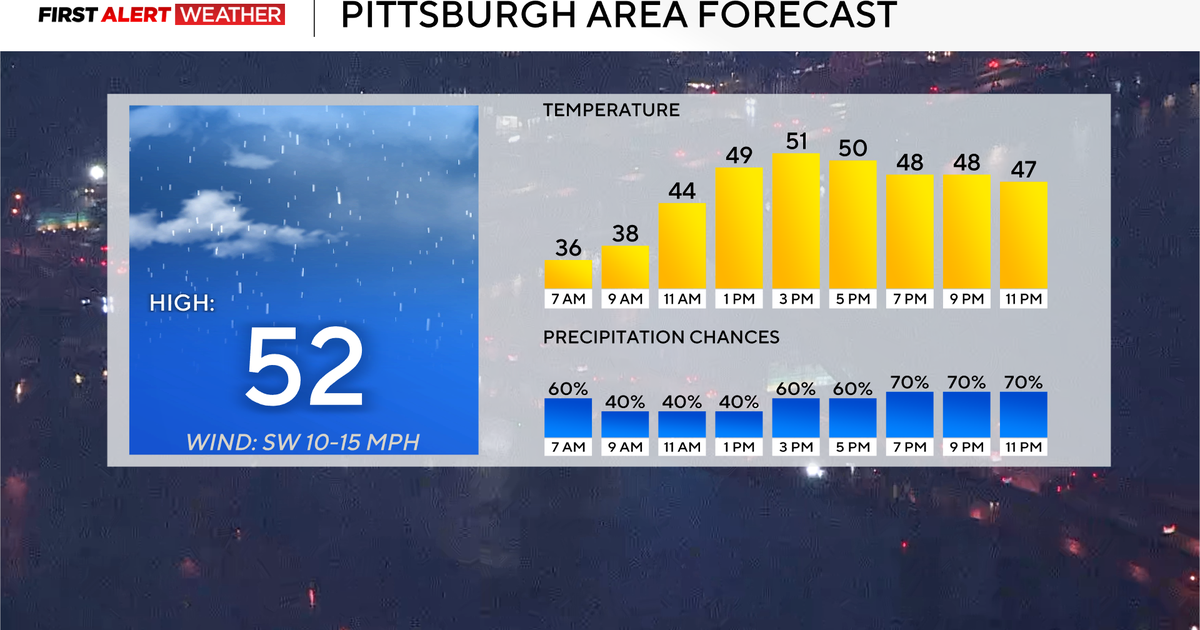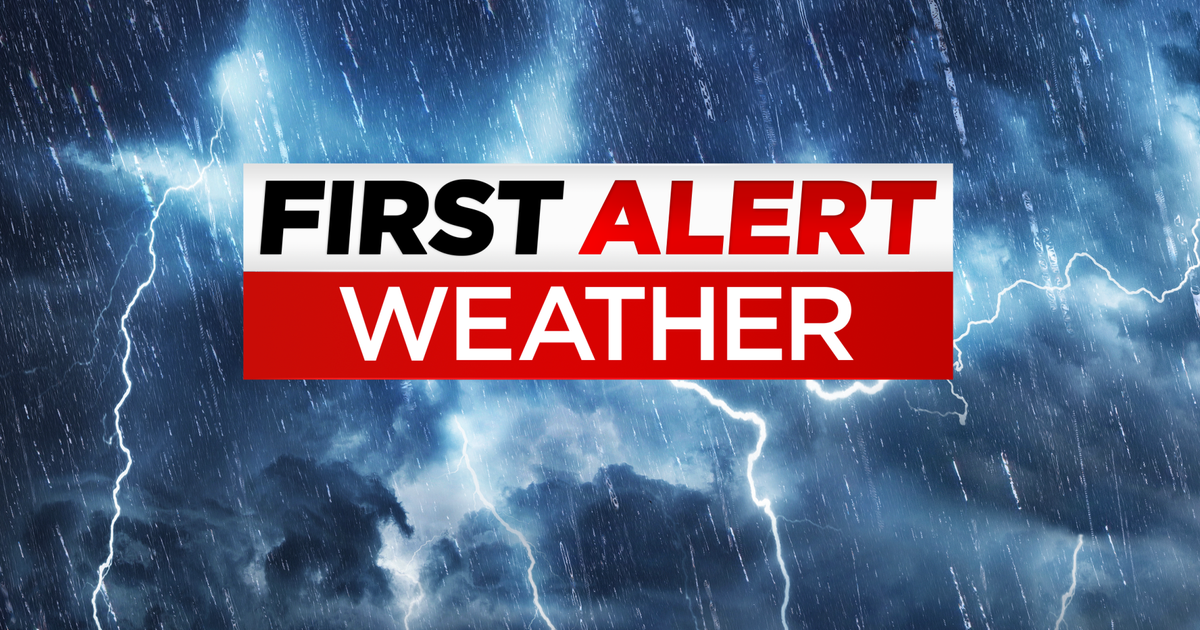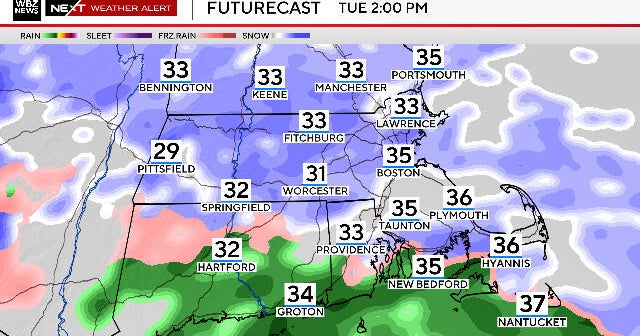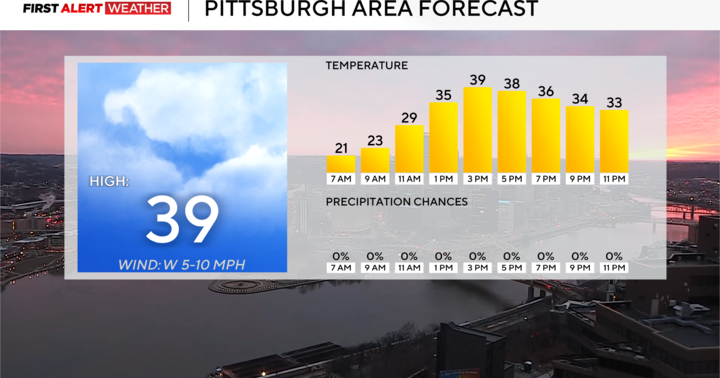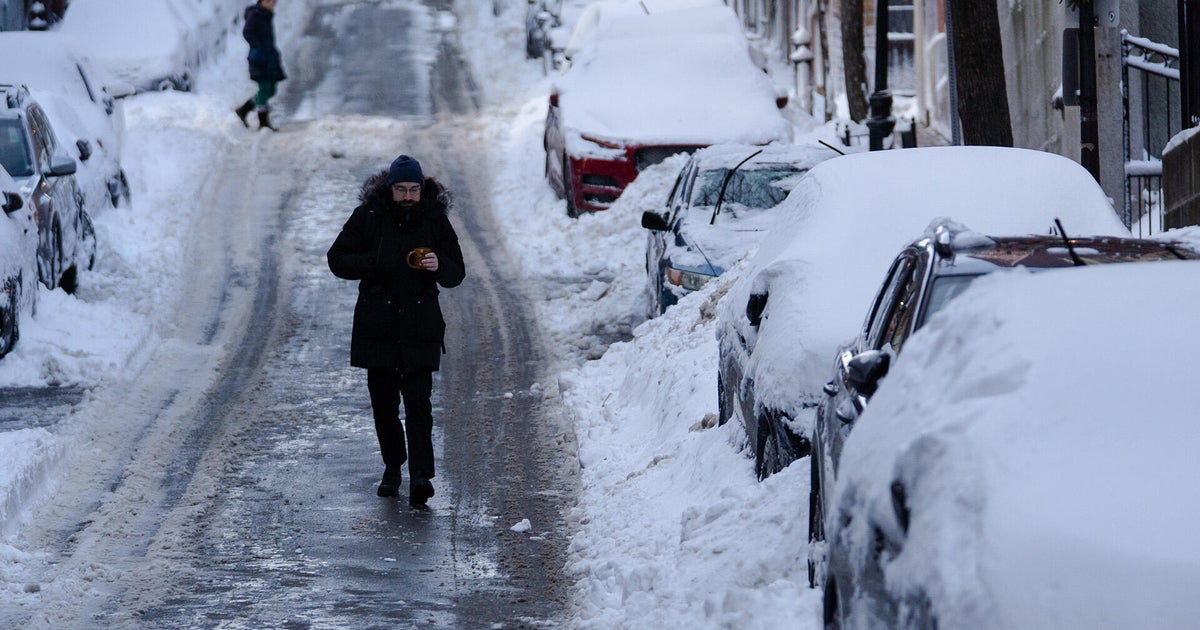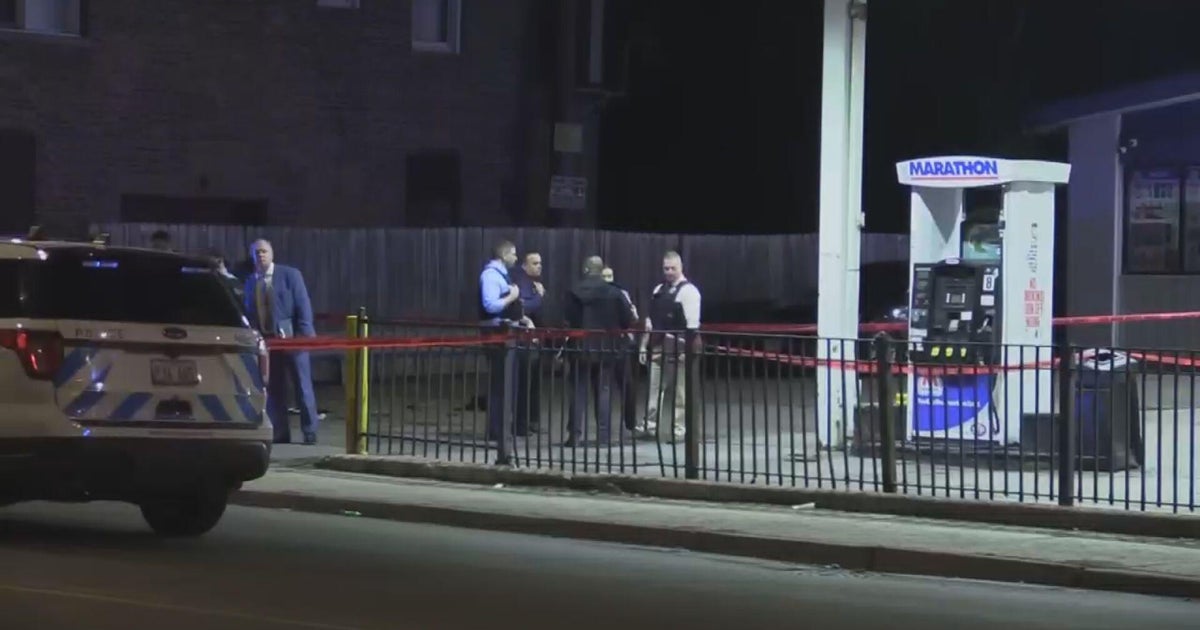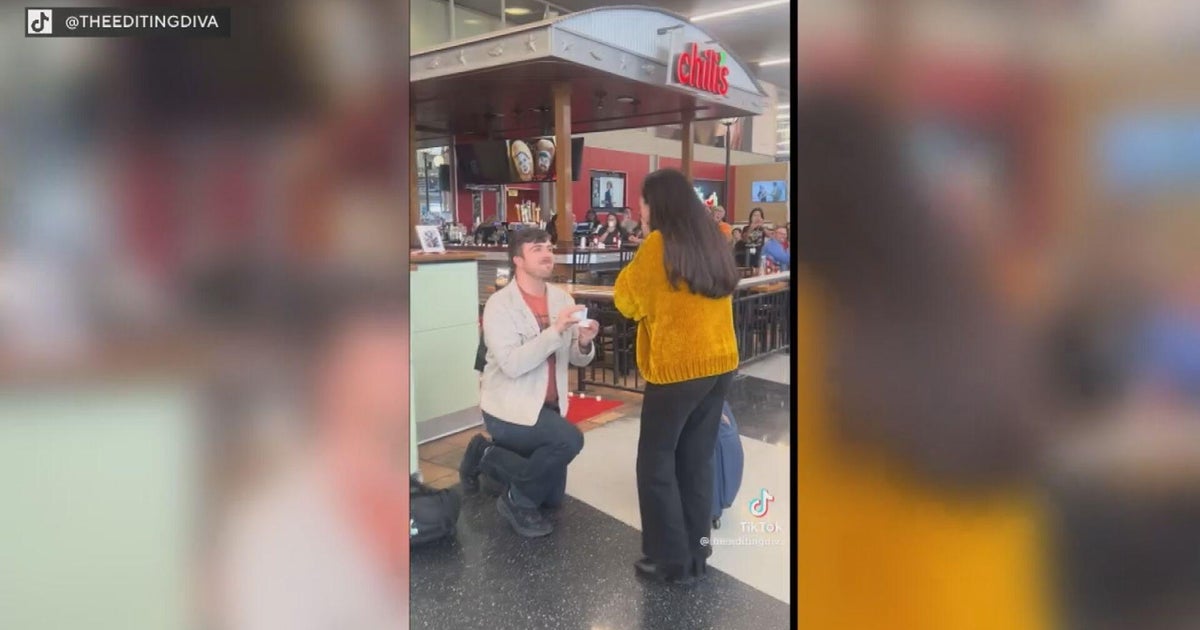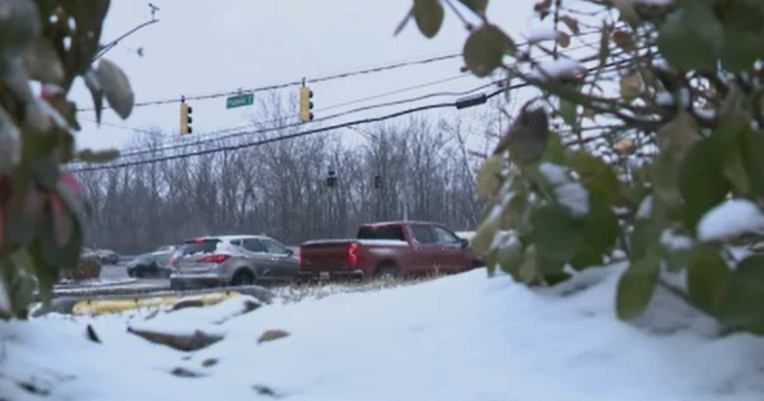As Chicago winters become warmer with less snow, overnight parking rules persist
CHICAGO (CBS) -- Chicago is known for its brutal winters.
Residents can recall when cars were stuck on DuSable Lake Shore Drive during the blizzard of 2011 or the polar vortex in 2019 when temperatures dropped below -20 degrees.
Older residents may even recall the 1979 snowstorm that shut down the city's airports and stranded cars and buses, making many Chicago streets impassable.
That's not likely to be the case Friday morning, as weather forecasters — including ones at this station — predict rain and temperatures in the 40s.
And while there's no snow in the forecast, some unlucky Chicagoans may pay an unexpected trip to one of the city's impound lots if they left their car parked on one of the city's snow routes.
Chicago's overnight winter ban prevents motorists from parking on roughly 100 miles of city streets from 3 a.m. to 7 a.m. between Dec. 1 and April 1 — whether or not there's actually snow to be plowed. And about 95% of the time, there was no plowable snow.
That has been the case largely since the ban was enacted more than 40 years ago, according to a CBS Chicago analysis of data from the National Weather Service. That analysis shows that of the roughly 5,200 days the ban has been in effect since 1980, there were only 261 days with snowfall over 2 inches (the city's threshold for enacting its other winter parking ban on every major street).
Since 1980, there have only been two years where residents woke up to snow on Dec. 1. The rest of the time has seen TV cameras capturing residents at impound lots, lamenting the lack of snow.
Last year, the city towed more than 7,300 cars in violation of the winter parking ban, according to an analysis of towing data from the city's Department of Streets and Sanitation.
The city typically tows an average of 8,800 cars annually for the overnight ban. Because so many of the impounds occur while there's no snowfall, residents and tourists have been left to believe the ban is a money grab by the city.
"Sometimes there's absolutely no snow at all yet people feel the grunt in their pocket," said Rosazlia Grillier, a South Side resident and renowned activist for the city's poor.
Grillier's organization, Community Organizing and Family Issues, helped facilitate numerous reforms to the city's ticketing and debt-collection practices under former Mayor Lori Lightfoot's administration.
Through the years, Grillier has experienced the city's ticketing and impound program numerous times.
"It's in effect, let's say when the ground is dry. We've had some winter days that are almost like summer," Griller said, "Yet, your car is towed."
On Thursday, temperatures in Chicago reached 50s degrees and sunny, and on Wednesday, Axios Chicago reported that this winter is forecasted to be warmer and with less snow, according to data from the National Oceanic and Atmospheric Administration.
"Out of all four seasons here in Chicago, winter is the fastest warming season," said Albert Ramon, First Alert Chief Meteorologist for CBS Chicago. "Your imagination isn't off, our winters from the '70s, '80s, even '90s …were colder and snowier than they are today. We've had steady warming over the past five decades."
Despite that, Chicago has been no stranger to major snow events.
Hundreds of motorists abandoned their cars on DuSable Lake Shore Drive in the 2011 snowstorm, and that took city workers days to tow and relocate the cars while also removing the snow.
The 2021 snowstorm that occurred during the height of the pandemic was one of the largest snowstorms Chicago has seen in recent years.
These snow events are why Cole Stallard, Chicago's head of Streets and Sanitation, urges constant vigilance in enforcing the city's winter parking regulations.
"Consistency, I believe, is the key," Stallard said. "We have 2.6 million people that live in the city. We have over 800,000 that use the CTA; 500,000 — right around 500,000 — on the bus every day. We got a million people coming into the city weekly. We got to keep the city moving. We got to keep our emergency vehicles moving."
Chicago's past looms large over the city's reluctance to revise, or even study, its winter parking rules.
The winter parking ban was implemented by Mayor Jane Byrne in 1980, after campaigning against former Mayor Michael Bilandic's failed response to Chicago's 1979 snowstorm.
Byrne's plan, Snow Plan '80, established a grid of arterial roads for snow removal: an overnight parking ban for roads deemed critical to make way for plows, and another, which would establish parking bans on every major street when snowfall was more than two inches.
The launch of the new routes included a media blitz, and the city commissioning a cartoon, featuring a character called Skippy the Snowball.
The grid has changed over time — after a North Side alderperson successfully pushed to remove portions of the ban in the '90s on Broadway, and parts of Foster Avenue in Edgewater and Sheridan Road in Uptown.
Still, the city maintains it is vital to keeping mass transit working and giving passage to emergency vehicles.
Nearly a decade ago, a group of alderpersons introduced an ordinance that would examine and update regulations. The 2014 ordinance ultimately went nowhere — but one of its co-sponsors, Ald. Scott Waguespack (32nd), still thinks there's room for improvement.
"In 2014, we were coming up with different ideas from other cities, and this is what we want to take a look at. I still think that applies now," he said. "How are they able to do it? Can they pull it off? And these other places? Sure, sure they can. So why can't we do it?"
Cities such as Detroit give residents a 48-hour notice when they expect three inches or more of snow. Minneapolis utilizes alternate-side parking during snow events and allows residents to resume parking after the plow trucks are done.
"In 2014, we were talking about looking at the whole picture holistically," Waguespack said. "What are we dealing with in this modern day?"
Waguespack may have support from other corners of City Hall.
City Clerk Anna Valencia, whose office commissioned a 2019 report on Chicago's fines and fees, thinks the parking ban could use a second look.
"I think a lot of these policies have to be looked at again. It was a recommendation from the [report] that said we needed to bring in CDOT, bring in Streets and San, bring in the mayor's office and look at whether we need this to be every arterial," Valencia said. "Anything that's 44 years old, we need to re-examine."
Valencia said that the impound fines can be disruptive for some families, and that a high percentage of people barely have $400 in savings.
While the vast majority of those scooped up in the winter parking ban reclaim their cars, a minority of people are not as fortunate.
Of the 7,309 cars towed for the overnight parking ban last year, about 147 owners were not able to reclaim their vehicles, and those cars were sold at auction, according to an analysis of city towing data.
Those instances reinforce the notion that the ban is a money grab, an assertion city officials like Streets and Sanitation commissioner Cole Stallard deny.
"The money grab's not there," Stallard said. "Please understand that. I'd like to get that out that this is not a money grab."
On that point, there's data to back him up.
Stallard's department contracts out the towing to a private company: United Road Towing, which charges the city $133.21 per vehicle towed, according to the city's latest contract.
With 7,309 vehicles impounded last year, the city was likely charged $973,631.89 to enforce the winter ban.
The city presumably made $150 + $25 storage fee from each of the 7,156 vehicles that were redeemed, totalling an estimated $1,252,300. That means the contractor took about 78% of the impound fees.
And of the 5,060 parking tickets issued for the overnight parking ban last year, only 3,274 were paid, or 65% of tickets issued, according to data from the Department of Finance. About 670 of those tickets were dismissed.
An additional 94 winter parking ban tickets were flagged as part of bankruptcy cases.
Stallard says his department's focus is on ensuring Chicagoans can safely navigate the city's streets during the winter and that it would be great if his department didn't have to tow vehicles for the parking ban.
"I would love to wake up and they said we towed no cars, that would be a great day for us," Stallard said.



